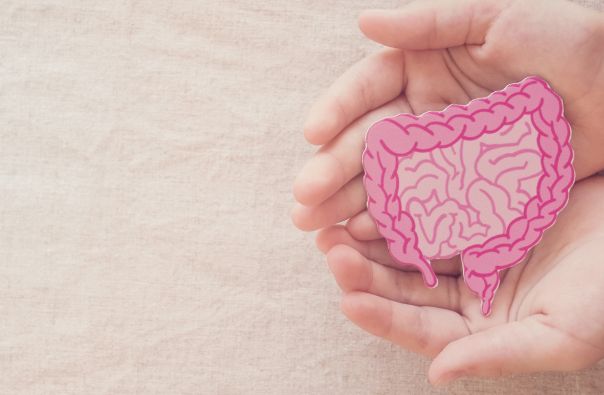Wondering how gut health affects mental health? This post will give you the answer.
Gut health and mental health are closely linked. Why?
The gut and the brain are constantly communicating with each other through a complex network of nerves, hormones, and immune cells. This two-way communication is known as the gut-brain axis.
A healthy gut microbiome, which is the trillions of bacteria that live in our intestines, is essential for good mental health. The gut microbiome plays a role in producing neurotransmitters, such as serotonin and dopamine, which regulate mood. The gut also produces hormones that affect stress and anxiety levels.
So, keeping our gut healthy is key to feeling good in our minds!
What happens if you have a bad gut microbiome?
An unhealthy gut microbiome, on the other hand, can lead to inflammation and the release of harmful toxins. This inflammation can damage the gut-brain axis and disrupt the communication between the gut and the brain. This can lead to a variety of mental health problems, including:
- Anxiety
- Depression
- Mood swings
- Brain fog
- Stress
- Fatigue
- Difficulty sleeping
- Irritability
- Difficulty concentrating

What are the signs of an unhealthy gut?
An unhealthy gut can manifest in various ways, and the signs may vary from person to person. Here are some common signs that might indicate an unhealthy gut:
- Digestive Issues. Persistent bloating, gas, constipation, diarrhea, or heartburn can indicate problems in your gut.
- Food Intolerances. Developing new food intolerances or sensitivities, especially to foods you used to tolerate well.
- Unintentional Changes in Weight. Significant and unexplained weight changes, either gaining or losing weight without changes in diet or exercise.
- Fatigue and Lack of Energy. Feeling tired and lacking energy even after a good night’s sleep.
- Skin Problems: Skin conditions like eczema, acne, or rosacea may be exacerbated by an unhealthy gut.
- Mood Disturbances. Anxiety, depression, mood swings, or irritability that doesn’t seem to have any other cause.
- Autoimmune Conditions. Certain autoimmune diseases might be linked to gut health issues.
- Sugar Cravings. Intense cravings for sugary foods, which might indicate an imbalance in gut bacteria.
- Sleep Disturbances. Insomnia, poor sleep quality, or waking up frequently during the night.
- Chronic Bad Breath. Persistent bad breath that doesn’t improve with oral hygiene.
- Joint Pain. Unexplained joint pain and inflammation.
- Weakened Immune System. Frequent infections or illnesses might suggest a weakened immune system, which can be connected to gut health.

How do you heal your gut for mental health?
Improving your gut health can have a positive impact on your mental well-being. Here are some steps you can take to support your gut health, which in turn might help promote better mental health:
- Eat Well. Eat a variety of healthy foods like fruits, veggies, whole grains, lean meats, and good fats. These foods are good for both your gut and your brain.
- Probiotics. Eat foods with probiotics like yogurt, sauerkraut, and kimchi. They help keep your gut bacteria balanced.
- Prebiotics. Eat foods with prebiotics like garlic, onions, and bananas. These foods help good bacteria grow in your gut.
- Avoid Junk. Stay away from processed foods, sugary snacks, and too much junk food. These can mess up the balance of bacteria in your gut.
- Manage Stress. Stress isn’t good for your gut. Try relaxing activities like yoga or meditation to help reduce stress.
- Sleep Well. Get enough sleep. It’s important for your overall health, including your gut and mental health.
- Drink Water. Stay hydrated by drinking water throughout the day. It helps your body work well, including your digestion.
- Exercise. Regular physical activity is good for your gut and your mental health.
- Be Careful with Antibiotics. If you need antibiotics, take them as your doctor tells you. Using them too much can mess up the natural balance of bacteria in your gut.
- Ask for Help. If you’re having serious gut or mental health problems, talk to a doctor. They can give you personal advice and might suggest treatments that fit your needs.
Wrap-up: How Gut Health Affects Mental Health?
In summary, a healthy gut is crucial for good mental health. The trillions of bacteria in our gut produce chemicals and hormones that regulate our mood, stress, and anxiety levels.
When our gut is unhealthy, it can lead to various issues such as digestive problems, fatigue, and mood disturbances. Taking care of our gut through a balanced diet, exercise, and stress management is essential for overall well-being, both physically and mentally.
This post was all about how gut health affects mental health.









